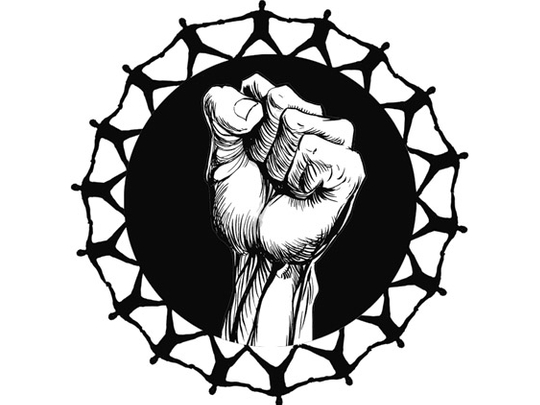
Although the 1648 Treaty of Westphalia ended the Thirty Years War (1618-1648), it ushered in a new political order in Europe, which underscored the very concept of a sovereign state. Ever since, nation-states have adopted modern diplomatic rights and privileges, which accentuated the triumph of liberal democracy. However, major powers have withheld constitutional privileges from small or peripheral ethnic groups in the name of security and stability.
With the end of the Cold War and the revitalisation of international norms pertaining to national self-determination, several new states have achieved sovereignty. Two examples, East Timor and Eritrea, benefited from United Nations-brokered referenda on independence. Importantly, both experienced turbulent and violent transition periods, before they could achieve formal statehood. A third, Kosovo, remained a disputed territory in the Balkans. If the partially recognised Republic of Kosovo enjoyed de facto control over most of its territory (with limited jurisdiction over North Kosovo), Serbia still considered it as a United Nations-governed entity, within its own sovereign territory.
Artsakh, or as it generally known in the West, Nagorno-Karabagh, faced a similar fate. An unrecognised, de facto independent state established in 1991, the Nagorno-Karabakh Republic was the subject of a war between Armenia and Azerbaijan that settled into a stalemate in 1994. Consequently, the territory failed to garner international recognition, while Yerevan and Baku sought the mediation of the Organisation for Security and Co-operation to help avoid renewed confrontations.
Why not?
Even Belgium came under recent pressure after the separatist New Flemish Alliance Party posted undeniable gains in parliamentary elections. While Brussels will probably survive on account of its peoples' incredible survival instincts, it may be important to ask why Dutch- and French-communities in Belgium should not live in separate geopolitical entities. More importantly, why should the number of countries around the world stand at only 195?
At the end of the Second World War, there were about 54 independent countries, even if an additional 16 ‘entities' also existed in what can only be described as a state of flux. Post-colonial policies granted independence to several nascent republics, whose total numbers reached 192 at the United Nations in 2010. Non-members functioned fairly efficiently, including Taiwan, Kosovo and the Vatican, confounding critics.
Remarkably, the Federation of International Football Associations (Fifa) boasts 208 members, and there are 205 national Olympic Committees, even if a few do not participate in quadrennial competitions for financial reasons. In short, 16 geopolitical entities recognised by Fifa are not yet independent, whereas this figure could be as high as 53 depending on whether one counts so-called irredentist movements that wish to secede. Every one of them is mired in unsolved political conflicts that can only be explained by a refusal to submit. All seek self-determination and, frankly, all deserve to acquire it, for it is unconscionable for any nation to live under strangulation.
If the early 1990s favoured self-determination for subjugated nations, support for genuine independence receded by the end of the 20th century, amid fears that the creation of new states might generate fresh outbreaks of hostility. At the dawn of the 21st century, and mobilised by the post-9/11 security syndrome, the international system focused on instability rather than self-determination. This preference notwithstanding, dozens of sub-national territories, including the Indonesian province of Aceh, Artsakh and the Angolan province of Cabinda, were undeterred. They continue to agitate for self-determination and secession despite ever-dimming prospects for achieving de jure statehood.
In the Belgian case, Dutch- and French-speaking communities refuse to accept the strict conditions imposed under the federal state Constitution, which meant that they should not be denied the right to be ‘free' of the other. It may be useful to recall that it was Lord Palmerston who created Belgium in 1830. Like the infamous 1916 Sykes-Picot agreement that divided large chunks of the Middle East into woefully complex, even impossible, political entities, Palmerston established a buffer state between the Netherlands and France. Truth be told, Palmerston did not give a fig about either the Dutch- or French-speaking communities there his actions illustrate imperial stretch. Sadly for Belgium, the reach's limited shelf-life now approached its expiry date. If the Belgians satisfied themselves with their Compromis des Belges, this so-called civilised way to manage crises was an ephemeral wish. Though European nations may have tired of killing each other, armed conflicts are not unknown on the continent, as the break-up of Yugoslavia clearly illustrated.
Still, the methods used by Palmerston, Sykes-Picot and George W. Bush are the same as those used in Palestine, Syria, Lebanon, Iraq and elsewhere, where political elites have been patched together under the guise of nationhood. In reality, disparities between elites, and their links with colonial and neo-colonial patrons, meant that locals were almost always at a disadvantage. Divide and rule tactics resulted in the rise of various nationalisms such as those of the Flemish in Belgium, the Maronites in Lebanon and the Sunnis in Iraq which were supplemented by linguistic or religious wars, to better justify irredentism.
Fifty years hence, one hopes that the total number of independent states will top 250, with no nation dominating another.
Dr Joseph A. Kechichian is a commentator and author of several books on Gulf affairs.











